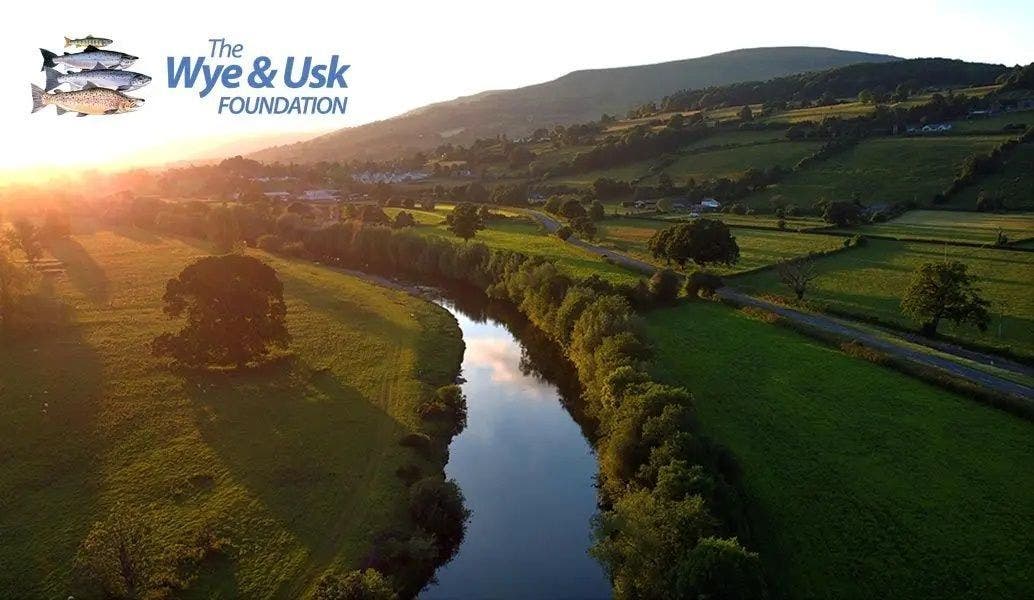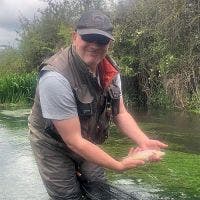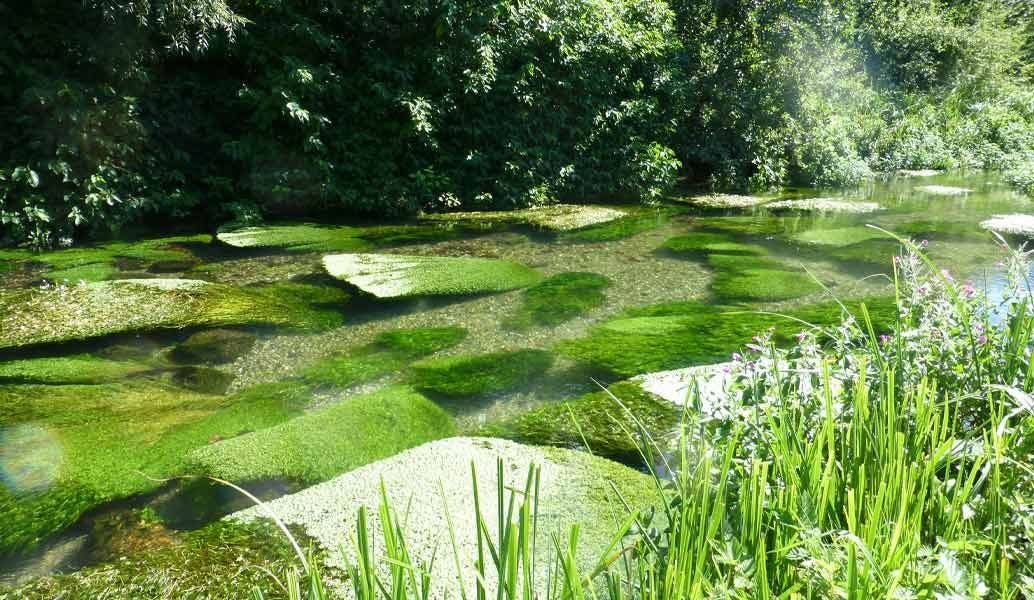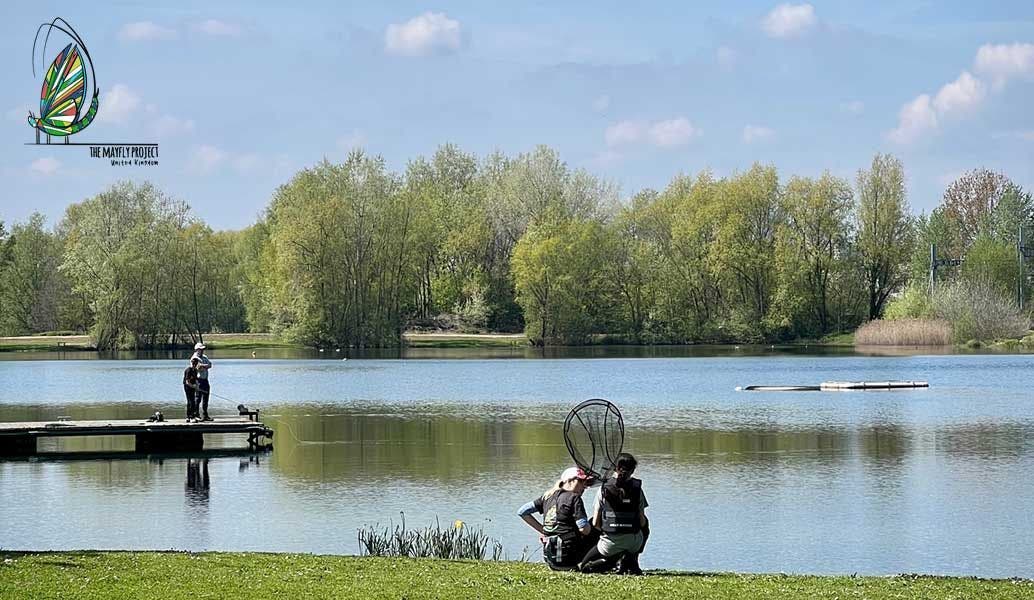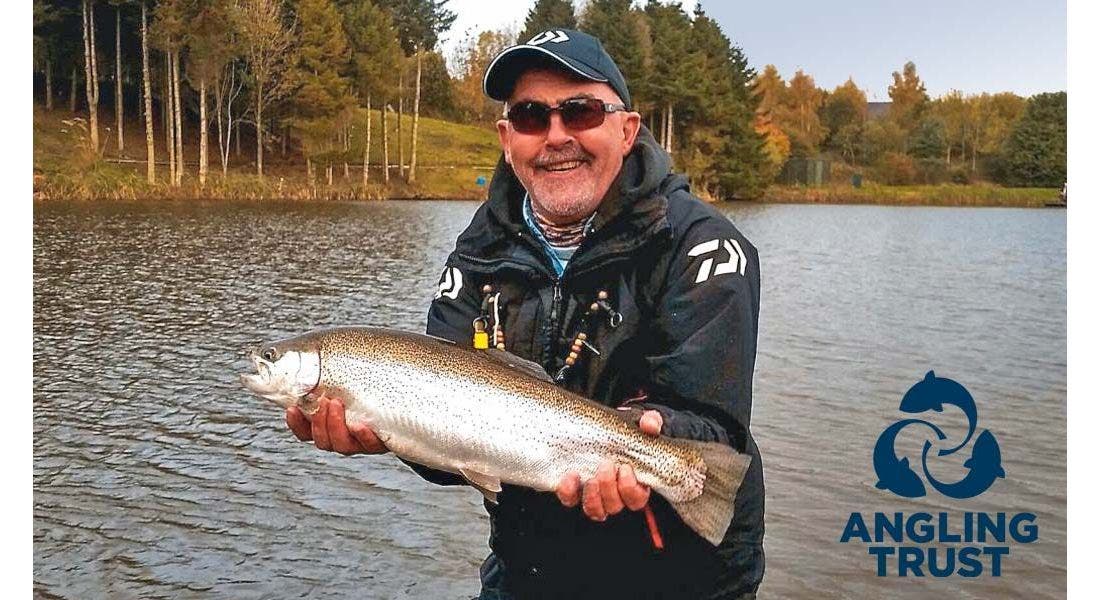At Sportfish we’ve been actively supporting national environmental charities for many years, especially the Wild Trout Trust and the Atlantic Salmon Trust. This year we’ve added two local river conservation organisations that are close to our Sportfish stores. The Sportfish Game Fishing Centre in Theale, whose trout lakes are fed by a tributary of the Kennet, now officially supports Action for the River Kennet, while our Sportfish store in Winforton on the banks of the river Wye now officially supports the Wye & Usk Foundation or WUF as it it known.
Let's take a closer look at WUF, we’ll have a quick look at what they do and why, and then hear from their Chairman Charlie Newington-Bridges and their CEO Simon Evans.
WHAT IS WUF?
The Wye and Usk Foundation is the largest rivers’ trust in England and Wales in terms of output and a leader in their field, developing new techniques and delivering improvements for the aquatic environment. Their two charitable objectives are:
- To conserve and maintain, protect, restore and improve the environments and habitats of the rivers Wye and Usk, their entire catchments, tributaries, watercourses and estuaries, including the Severn Estuary, together with their fish species especially salmon and other indigenous species of animal and plant life.
- To advance education in the conservation of rivers, river catchments and their animal and plant life and the need for conservation, protection, restoration and improvement of such environments for the wellbeing of future generations.
The Foundation was formed in 1995 due to the alarming decline in Atlantic salmon and that very little was being done to address the serious problems facing the rivers Wye and Usk. Since then, they have worked with a range of partners and the wider public in a series of projects to remedy these issues. This has been to the benefit a wide range of flora and fauna, along with local communities and the economy.
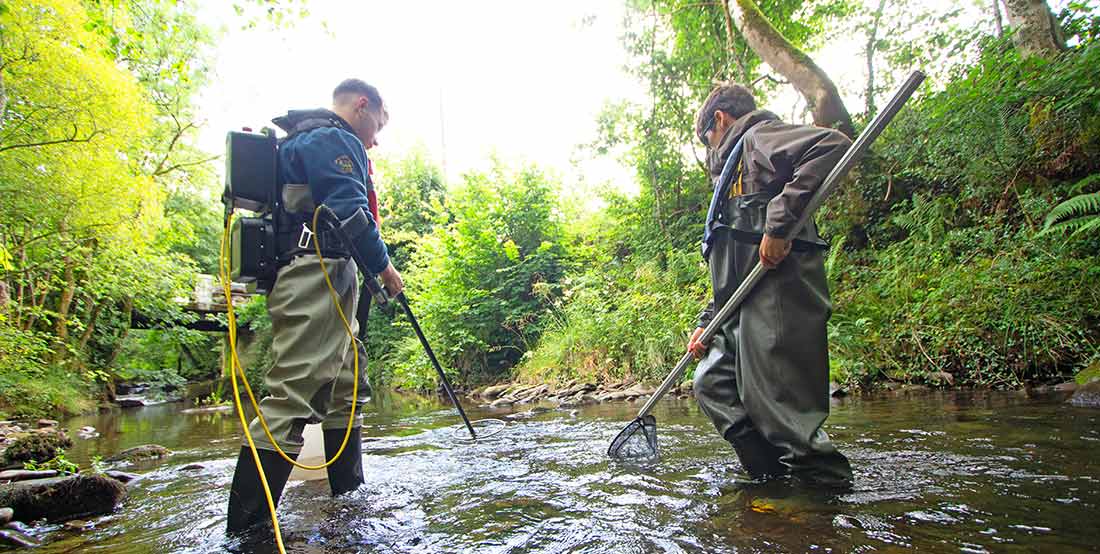

They are much more than just a lobbying charity. First and foremost, they are a “doing” organisation with track record in delivering results for the environment. Broadly speaking, their work can be divided into three categories:
ENVIRONMENT
Through a series of partnership projects, they remedy problems affecting the two rivers such as habitat degradation, poor water quality and diffuse pollution, over-abstraction, barriers to fish migration and over-exploitation of our fisheries.
EDUCATION
They also deliver environmental learning opportunities about rivers across the Wye and Usk catchment areas.
ECONOMICS
They bring the economic benefits of their environmental work to local communities. This last element of their work is delivered through The Fishing Passport, which has grown into one of the biggest day ticket schemes in the UK, with direct access to over 200 river and still water fisheries across Wales and the Marches.
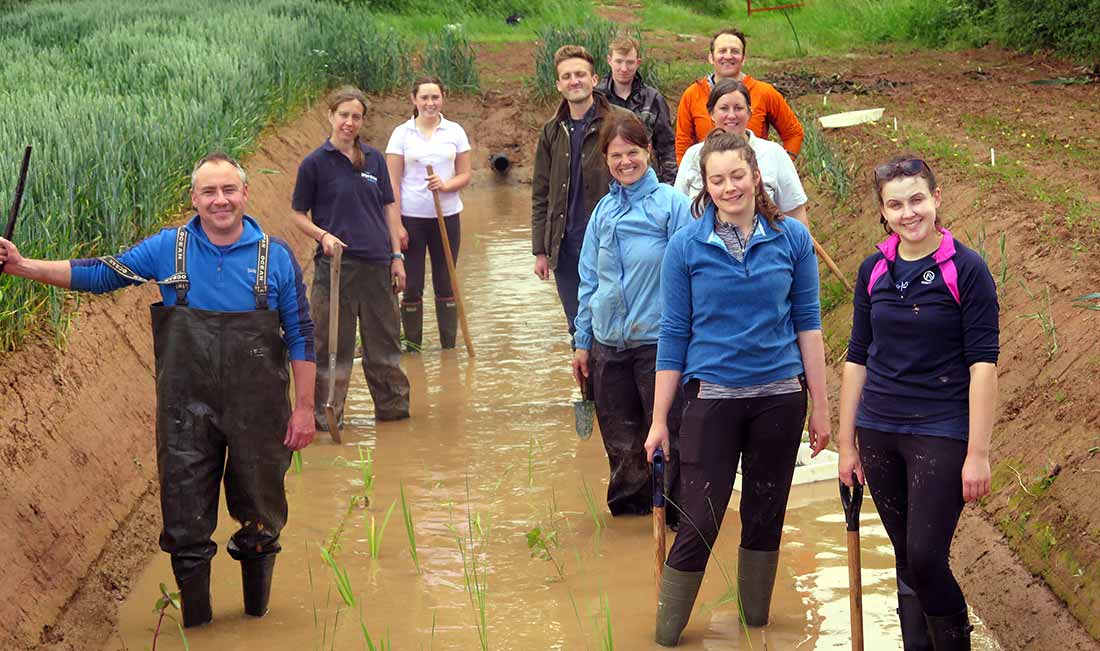

THE RIVERS THEMSELVES
THE RIVER WYE
Rising on the slopes of Pumlumon in the Cambrian Mountains, the river Wye (Afon Gwy in Welsh) flows for approximately 152 miles in a generally south easterly direction. It is the fifth longest river in the UK passing through Builth Wells, Hay-on-Wye, Hereford, Ross-on-Wye and Monmouth, before joining the Severn Estuary at Chepstow. For much of its length the river forms the border between England and Wales.
The river is host to an array of wildlife and is both a Site of Special Scientific Interest (SSSI) and Special Area of Conservation (SAC) for most of its length. Atlantic salmon are one of the listed migratory fish species for which the river is famous. Its main tributaries include (in a downstream order) the Elan, Ithon, Irfon, Lugg and Monnow.
The Wye was voted the nation’s favourite river in 2010. However, like most rivers in the UK, it has faced an increasing array of issues and threats in recent years. Extensive work has been carried out by the Foundation and its partners to tackle these.
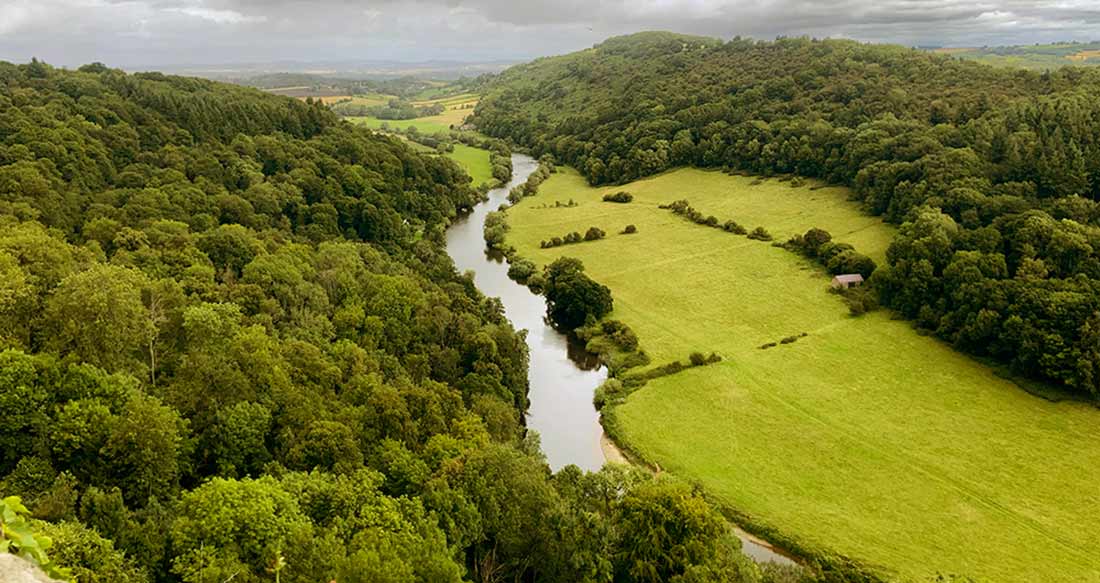

The Wye was particularly famous for its large "spring" salmon that had spent three or more years at sea before returning to spawn. They used to enter the river between January and June and sometimes reached weights of over 50 pounds (23 kg), the largest recorded being 59 lb 8 oz (27.0 kg) landed after a long fight by Miss Doreen Davey from the Cowpond Pool at Winforton on 13 March 1923. The last recorded 50 lb (23 kg) rod-caught salmon from the Wye was taken in 1963 by Donald Parrish and weighed 51 lb 8 oz (23.4 kg). In the 7 years that our sister brand Farlows has been awarding the Charles Farlow Trophy to the largest fly caught salmon safely released in an English or Welsh river, 5 of the winning fish came from the Wye.
Pollution has severely affected the river, Guardian columnist George Monbiot remarked in 2021:
“The Wye is dying at astonishing, heartbreaking speed. When I canoed it 10 years ago, the stones were clean. Now they are so slimy that you can scarcely stand up.”
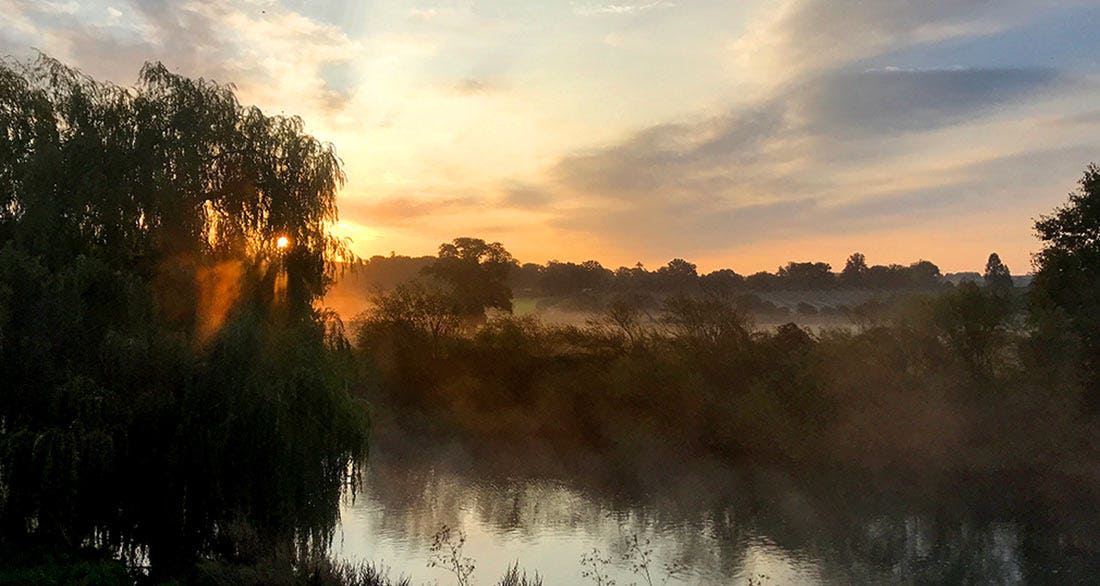

THE RIVER USK
The River Usk (Afon Wysg in Welsh) rises on the northern slopes of the Black Mountain (y Mynydd Du) at the western edge of Brecon Beacons National Park.
Its headwaters drain into the Usk reservoir, from where the river flows in an easterly direction to begin with. The river passes to the north of the Brecon Beacons before starting to take a more southerly bearing through Abergavenny and the town of Usk itself, joining the Bristol Channel at Newport. The Usk is host an array of wildlife and is both a Site of Special Scientific Interest (SSSI) and Special Area of Conservation (SAC) for most of its length.
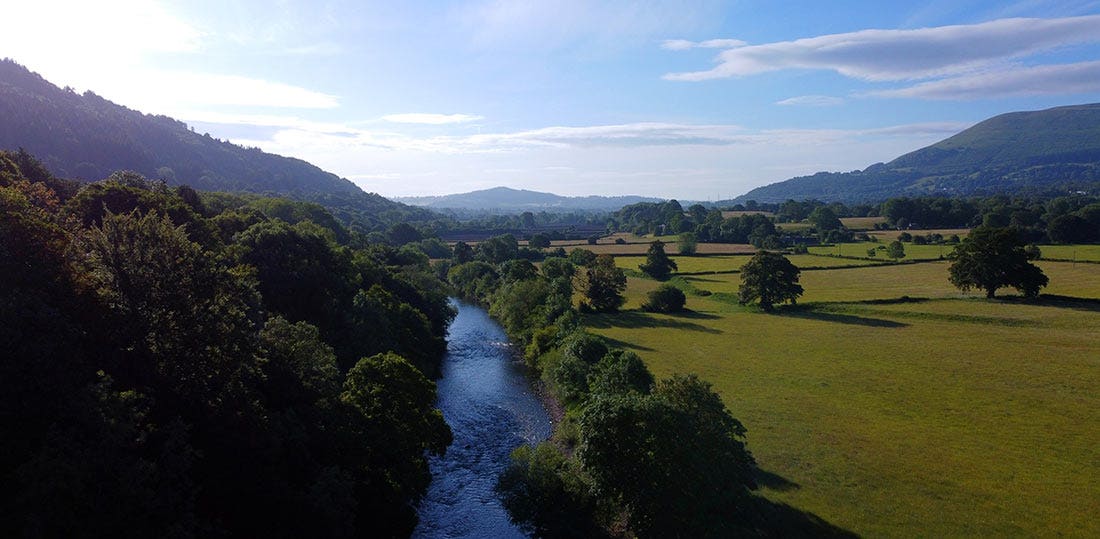

As well as being a premier Welsh salmon river, the Usk is also acclaimed as one of the best wild trout rivers in the UK, capable of producing brown trout up to five pounds in weight with the average fish being around a pound. It is worth noting, however, that unlike its neighbour, the Wye, the Usk does not hold any grayling.
The salmon run on the Usk is slightly later than the Wye, with the bulk of the catches coming from May/June onwards but there are springers to be found too. Early season salmon fishing tends to be confined to the lower reaches but from June onwards, salmon can be found as far upriver as Brecon. In addition to the main river, the Usk also has plenty of first class trout fishing on offer in its tributaries.
CHARLIE NEWINGTON-BRIDGES
WUF CHAIRMAN
"I have loved the Wye and Usk rivers since moving to the area in 2012. I am a fisherman first and foremost and I have fished both rivers regularly, delighting in the beauty of their flora and fauna and I have occasionally caught a salmon in their waters.
It is those waters that concern me, fly fishing enthusiasts, and so many of you who live near or know these rivers. It is the waters that led me to become a trustee and now chairman of WUF. The simple fact is that they are under extreme pressure from an array of threats, particularly pollution. If we do not act now the ecosystems of our rivers will simply cease to exist.
One of the many reasons I admire WUF’s work so greatly is because it is at heart a ‘doing’ organisation. There are many campaigning voices out there and I applaud the invaluable work they do in raising awareness of the rivers’ plight and pressurising politicians to act. However, the work on and literally in our rivers is done by WUF. This spans funding and collecting the scientific data to inform those who campaign, to advising farmers on strategies to mitigate their impact on the rivers to cleansing the headwaters where salmon spawning takes place. It also importantly involves education so we provide seminars, talks and even classes to schools to improve understanding of our rivers.
Our work is at the cutting edge of river science and also mundane – ranging from developing and delivering novel solutions to longstanding issues, to our habitats team walking the tributaries in autumn removing obstacles preventing fish getting to their spawning grounds. We have the knowledge, experience, people and determination to work in and on the rivers and with those whose livelihoods interact with the river. We will be here when the noise quietens continuing the work we started in 1996, when the organisation was formed.
We are a rivers trust and an environmental charity. To achieve our charitable aims to conserve, protect and restore the rivers Wye and Usk and their entire catchments together with their fish species especially salmon as well as to educate the public in the understanding of rivers and the need for conservation, we urgently need your help."
SIMON EVANS
WUF CEO
"The Wye and Usk are two of the most iconic rivers in the country and until 2016 were bucking the national trend. They were in full recovery after 20 years of work solving the problems of fish access, habitat degradation, acidification of headwaters and reduced soil loss to the river in Herefordshire. In recent years a new complex suite of problems has emerged, including more extreme flows, loss of ranunuculus, nutrient enrichment, too much soil is still washing off fields, increasing winter and summer water temperatures and there is increasing evidence that a toxic cocktail of chemicals is impacting our rivers.
To solve these, we are investigating to understand the quantum and cause of each problem, determining the best solutions and sharing the knowledge in order to achieve collective understanding. That allows us to pull together to deliver the changes required effectively and efficiently so we can recover these magnificent and much-loved rivers. We are passionate about doing this and it hurts us to see where we are. We have to, and will get these rivers back from the brink. This what the Wye and Usk Foundation does."

